On December 4, Italians go to the polls in a referendum that could bring the most significant changes to the country’s constitution since its entry into force in 1948. The proposed changes are many and far-reaching, with the most significant reform involving moving beyond a balanced bi-cameral parliamentary system. By downgrading the Senate vis-à-vis the Chamber of Deputies, the latter would become overwhelmingly and often solely responsible for most legislative work. The changes would also give the Chamber of Deputies the sole right to approve or dismiss the government, transfer a variety of responsibilities from regional authorities to the central state in Rome, and change the procedure to elect the president of the Republic.
With the West already reeling from democratic shocks in the United Kingdom and the United States—and with several highly uncertain European national elections scheduled for next year—the vote in Italy is being watched closely. What will it mean if populist forces there manage to block constitutional reforms, further undermining an already fragile Europe?
Pros and cons
Proponents highlight a number of potential benefits to these reforms. To begin with, getting rid of local provinces and hundreds of senators, as well as scaling down the responsibilities of the Senate would decrease the costs associated with running the state apparatus. Furthermore, reform supporters stress that decreasing the obstructive powers of the regions—as well as those of the Senate—would help increase the productivity of the notoriously slow Italian legislative process. Last but not least, they point out that, should things remain the same, the two chambers of parliaments would be elected through two radically different electoral systems, thus potentially leading to chaotic and unmanageable parliamentary majorities.
Opponents charge that the reforms would erode democratic checks and balances. On the one hand, the current electoral law would de facto give “dictatorial majorities” in the Chamber of Deputies to election winners. The fact that government-sponsored legislation could be fast-tracked and that the number of senators contributing to electing the president of the Republic would be decreased would also significantly strengthen the hand of the executive. On the other hand, no legislation has yet been approved to regulate the activities of the reformed Senate. Additionally, no clear provisions have been made to deal with the fact that senators will simultaneously fulfill a variety of institutional roles at the local level.
Domestic implications
Should the “yes” side win, the government would be significantly strengthened domestically. So much so that it might be emboldened to call for snap elections to enhance its position in Parliament. The new electoral law that would be applicable only to the Chamber of Deputies is designed to give a significant “prize” in terms of seats to the party that obtains the most votes. At the same time, the new electoral law allows leaders of each party to directly select the candidates for the top spots in their party’s electoral lists, therefore strengthening the control that the party’s leader can exercise on deputies. Boosted by a very personal success at a time when Italians finally seem to perceive an improvement in their economic situations, Matteo Renzi could legitimately expect a good result at the ballot box. Should that materialize, Italy would find itself with the strongest and most stable government since the advent of democracy.
If the heterogeneous alliance favoring a “no” vote wins instead, the government would be fatally wounded. Factions opposing Renzi within his own Democratic Party would blame him for the loss at the ballot box and the main opposition force Five Star Movement would be emboldened by claiming to have defeated the government while at the same time riding high in the polls. While not legally compelled to do so, Renzi would come under enormous pressure to resign. At that point, he could reshuffle the government and form a new but weaker government. Alternatively, the Italian president could entrust an interim government with passing the budget for 2017 and reforming the electoral law. Should a technocrat be appointed for this purpose, the internationally respected Finance Minister Pier Carlo Padoan would be in pole position for the job.
Ripple effects across Europe and beyond
Should the reforms be approved, Matteo Renzi could also show off his achievement across European capitals and tout Rome as an unusual island of stability in turbulent times across Europe and beyond. Throughout 2017, Italy would be well positioned to influence European policymaking while other countries are busy with the ballot box.
The international community would also be relieved by the fact that the third largest economy in the eurozone—and among the ones with the largest public debts in the world—would be managed by a steady hand at a time of uncertainty in global financial markets. An emboldened Renzi could be expected to take advantage of electoral campaigns across Europe to push for a shift away from austerity measures—or, at the very least, for more leeway in promoting a mildly expansionary budget. As governments in Paris and Berlin make a raft of electoral promises to dampen the support of their populist and right-wing opponents, he might find sympathetic ears.
Conversely, should the reforms be rejected, Italy could become yet another source of instability in Europe. As France, Germany, the Netherlands, and others head to the polls in 2017, Italy might follow suit. Currently ahead in the polls, the populist Five Star Movement could then well be on its way to forming a government. Characterized by a mix of anti-European and filo-Russian positions, anti-establishment rhetoric, and total inexperience in national government, the movement (lead by former comedian Beppe Grillo) would present a big question mark for both Europe and the United States. In a worst case scenario, the financial markets would be spooked by Grillo’s victory, Italy would be pushed on the brink of default, and both Europe and the rest of the world would be dragged into another global economic and financial crisis. In a more likely but yet still depressing scenario, many months of uncertainty would be in the cards, as a populist movement catapulted into government would belatedly have to sort out its policy positions while struggling to reassure its European and transatlantic partners.
The Brookings Institution is committed to quality, independence, and impact.
We are supported by a diverse array of funders. In line with our values and policies, each Brookings publication represents the sole views of its author(s).


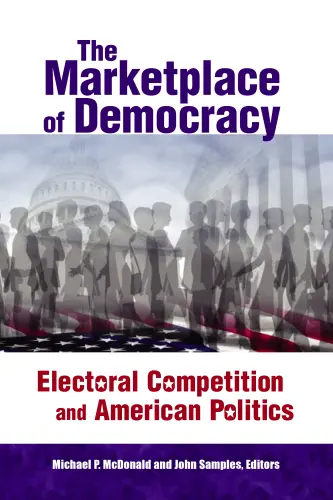
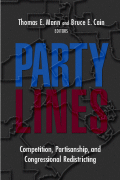
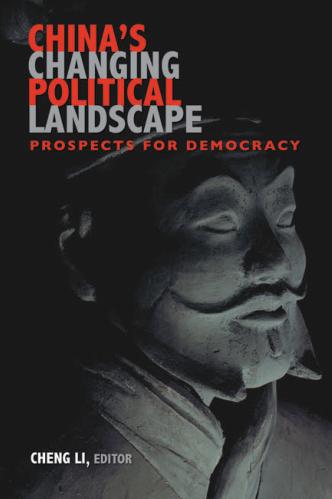
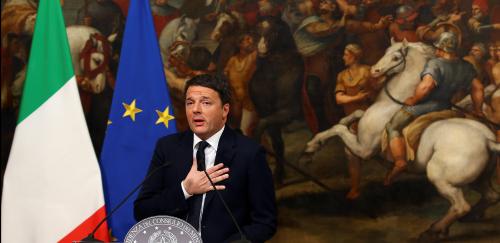
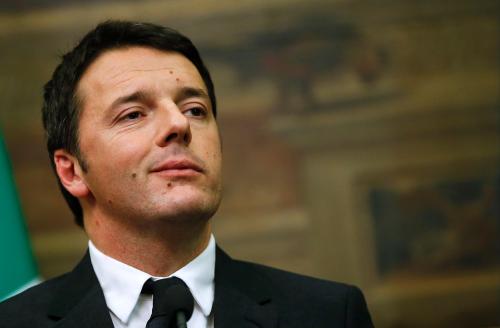
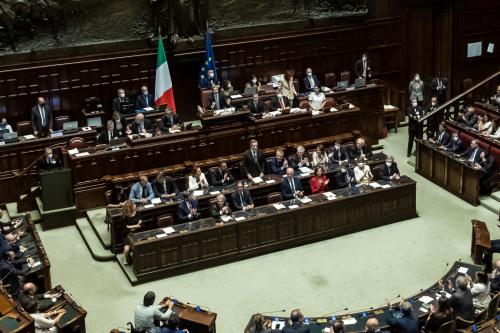



Commentary
What Italy’s referendum could mean for Europe
November 30, 2016